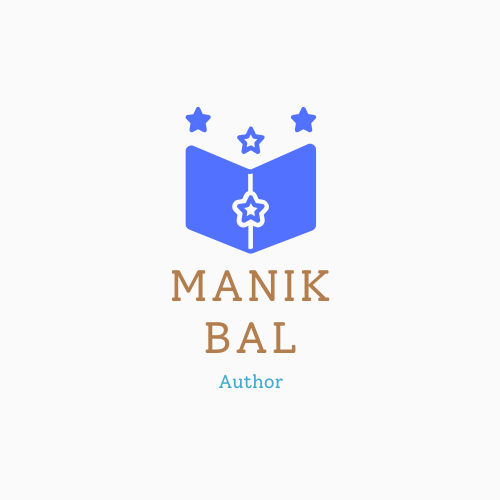The idea of the “natural writer” is a common myth that suggests some individuals are inherently gifted with writing abilities, while others are not. However, research in the field of writing has consistently shown that writing is a skill that can be developed and honed through practice and dedication. Studies have demonstrated that effective writing is not solely reliant on innate talent, but rather on a combination of learned techniques, critical thinking, and a deep understanding of the subject matter.
This challenges the misconception that only a select few possess the ability to excel in writing. Furthermore, research has highlighted the importance of deliberate practice in improving writing skills. Psychologist Anders Ericsson’s work on deliberate practice emphasizes the role of consistent and focused effort in mastering a skill, including writing.
This suggests that rather than being an inherent talent, writing proficiency is a result of sustained effort and continuous refinement. Therefore, the myth of the “natural writer” is debunked by research that emphasizes the role of practice and perseverance in achieving writing excellence.
Key Takeaways
- The Myth of the Writer’s Block: Research shows that the concept of writer’s block is not supported by evidence and can be overcome with psychological strategies.
- The Truth About Creativity: Research challenges the common misconception that creativity is an innate talent, showing that it can be developed through practice and specific techniques.
- Writing for Different Audiences: Research highlights the impact of reader response on writing, emphasizing the importance of understanding and adapting to different audiences.
- The Science of Revision: Research demonstrates the significance of editing and rewriting in the writing process, showing that multiple revisions lead to improved quality.
- The Role of Feedback: Research explores the impact of peer review and critique on writing, indicating that constructive feedback is essential for growth and improvement.
Debunking the Idea of Writer’s Block: Exploring the Psychology of Writing
Writer’s block, often portrayed as an insurmountable obstacle for writers, is a myth that has been perpetuated in popular culture. However, research in psychology and cognitive science has shed light on the underlying factors contributing to this phenomenon. Studies have revealed that writer’s block is often linked to anxiety, perfectionism, and self-doubt rather than a lack of creativity or inspiration.
Understanding these psychological aspects can help writers overcome this perceived barrier. Moreover, research has shown that establishing a structured writing routine and setting realistic goals can mitigate the effects of writer’s block. By breaking down the writing process into manageable tasks and creating a supportive environment, individuals can effectively navigate through periods of stagnation.
Additionally, cognitive strategies such as freewriting, mind mapping, and brainstorming have been found to stimulate creativity and alleviate writer’s block. Therefore, by delving into the psychology of writing, research offers practical insights for writers to overcome this myth and enhance their productivity.
The Truth About Creativity: How Research Challenges Common Misconceptions
Creativity in writing is often associated with spontaneous bursts of inspiration and originality. However, research has challenged this romanticized notion by highlighting the multifaceted nature of creativity. Studies have demonstrated that creativity in writing is not solely reliant on innate talent or sudden flashes of brilliance but is a result of a combination of factors such as knowledge, experience, and cognitive processes.
Furthermore, research has emphasized the role of divergent thinking in fostering creativity in writing. Divergent thinking involves generating multiple ideas and exploring various perspectives, which is essential for producing innovative and engaging content. Additionally, studies have shown that exposure to diverse experiences and interdisciplinary knowledge can significantly enhance creative thinking in writing.
By debunking the myth of creativity as an elusive trait, research underscores the importance of cultivating a conducive environment for creative expression and embracing a systematic approach to writing.
Writing for Different Audiences: Understanding the Impact of Reader Response
The notion that effective writing is universal and transcends audience differences is a common misconception that has been challenged by research. Studies have highlighted the significance of considering the diverse backgrounds, preferences, and expectations of readers when crafting written content. Research in rhetoric and composition has emphasized the impact of reader response on shaping the effectiveness of written communication.
Moreover, audience analysis has been identified as a crucial aspect of the writing process, as it enables writers to tailor their message to resonate with specific readers. Research has shown that understanding the demographics, cultural nuances, and psychographics of the target audience can significantly influence the reception and interpretation of written material. By acknowledging the influence of reader response, research underscores the importance of adapting writing style, tone, and content to effectively engage different audiences.
The Science of Revision: How Research Shows the Importance of Editing and Rewriting
The misconception that great writers produce flawless work from the outset has been dispelled by research that emphasizes the iterative nature of writing. Studies have underscored the significance of revision as an integral part of the writing process, challenging the notion that exceptional writing is achieved in a single draft. Research has shown that revising and editing play a pivotal role in refining ideas, clarifying arguments, and enhancing overall coherence in written work.
Furthermore, cognitive studies have revealed that revisiting and restructuring written material can lead to deeper insights and improved clarity. Research has also highlighted the cognitive benefits of revising, such as enhancing critical thinking skills and fostering a deeper understanding of the subject matter. By shedding light on the science of revision, research emphasizes the iterative nature of writing and underscores the value of continuous refinement through editing and rewriting.
The Role of Feedback: Exploring the Impact of Peer Review and Critique
The Role of Constructive Feedback
Research has shown that receiving constructive feedback from peers, mentors, or instructors can significantly enhance the effectiveness and coherence of written work.
Studies have demonstrated that feedback plays a crucial role in improving writing quality, challenging the traditional belief that writing is a solitary endeavor.
The Benefits of Peer Review
Research in composition theory has highlighted the role of peer review in promoting critical thinking, revision skills, and collaborative learning among writers. Peer review fosters a collaborative environment where writers can engage in constructive feedback exchanges, leading to improved writing outcomes.
The Value of Diverse Perspectives
Cognitive studies have shown that engaging in feedback exchanges fosters metacognitive awareness, enabling writers to reflect on their own writing processes and make informed revisions. Moreover, research has underscored the value of diverse perspectives in feedback, as it exposes writers to alternative viewpoints and encourages them to consider multiple interpretations of their work.
Writing Across Disciplines: Examining the Research on Transferable Writing Skills
The misconception that writing skills are domain-specific and confined to particular disciplines has been refuted by research that highlights the transferability of writing proficiency across various fields. Studies have shown that fundamental writing competencies such as critical analysis, argumentation, and synthesis are applicable across disciplines, underscoring the universal nature of effective communication through writing. Furthermore, research has emphasized the role of interdisciplinary writing experiences in fostering adaptability and versatility in written expression.
Studies have demonstrated that engaging in diverse writing tasks across different disciplines enhances cognitive flexibility and broadens writers’ repertoire of rhetorical strategies.
By examining the research on transferable writing skills, it becomes evident that effective writing transcends disciplinary boundaries and equips individuals with versatile communication abilities essential for success in diverse academic and professional contexts.
In conclusion, by delving into these various aspects of writing through a research lens, it becomes evident that many commonly held beliefs about writing are myths that have been debunked by empirical evidence.
Understanding these insights can help writers approach their craft with a more informed perspective and leverage research-based strategies to enhance their writing proficiency across different contexts and audiences.






0 Comments